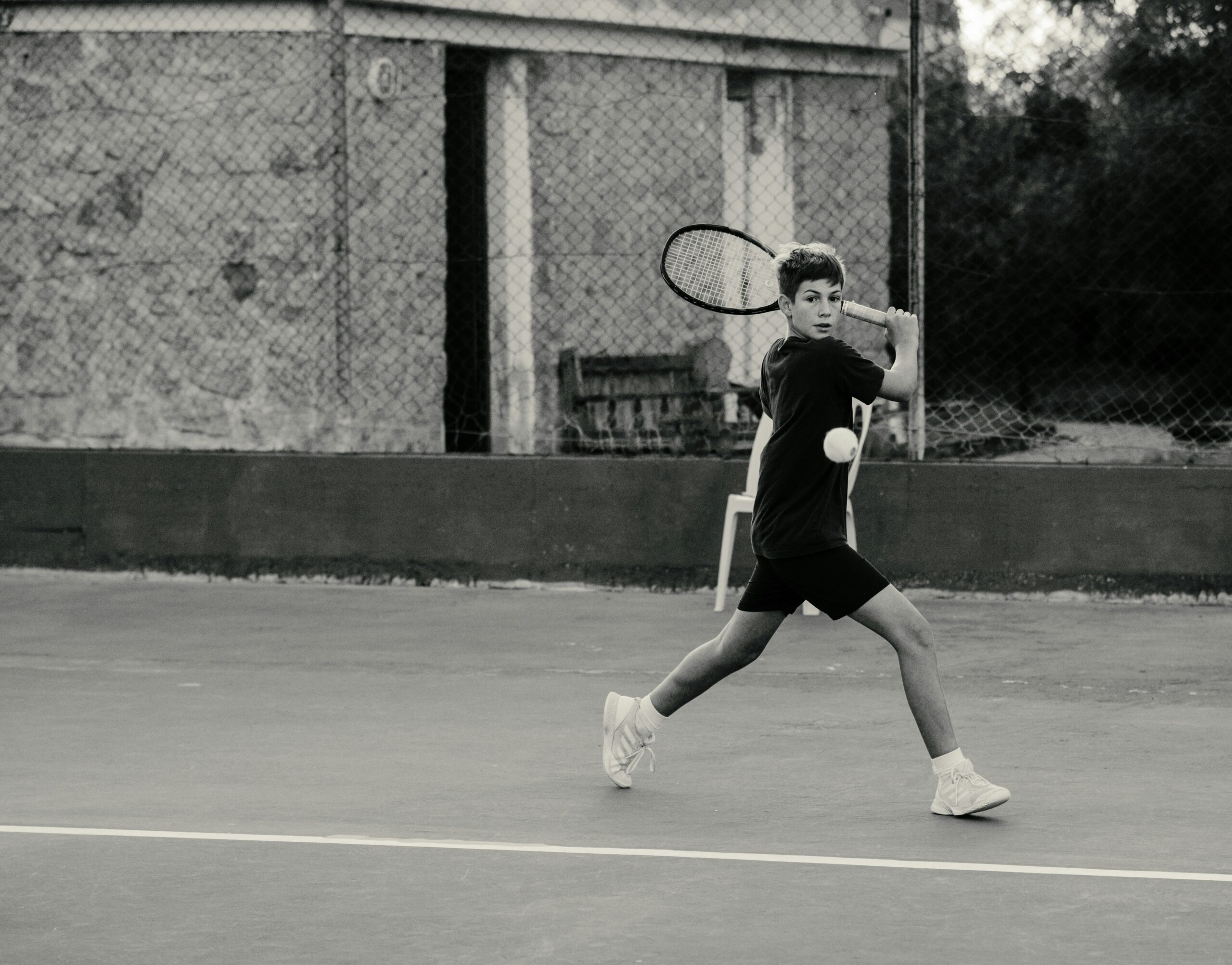
Tennis is often regarded as a sport that combines precision, strategy, and physical endurance. Yet beyond the baseline rallies and fast serves, tennis holds the power to transform lives on a deeper level. It becomes more than just a game—it evolves into a form of meditation, therapy, and self-discovery. Playing tennis not only trains the body; it also sharpens the mind, nurtures emotional balance, and reveals inner strength.
The Court as a Mirror of the Self
Every player who steps onto the court brings not just their racket, but also their fears, emotions, and mindset. Tennis acts like a mirror. When frustration arises after a missed shot, it reflects a lack of patience. When confidence shines after a perfect rally, it reveals self-belief. In this way, tennis offers an opportunity to understand emotions and patterns that extend far beyond the sport.
By observing reactions during a match, players gain insight into how they face challenges in daily life. Do they give up quickly? Do they fight until the last point? Do they get discouraged after setbacks, or do they rise stronger? The answers to these questions reveal a great deal about the journey of self-discovery.
Tennis as Moving Meditation
Unlike team sports, tennis requires complete focus on the present moment. Each point begins with a reset, a fresh chance to direct energy and awareness. This rhythm closely resembles meditation. The sound of the ball, the rhythm of footsteps, and the steady breathing create a flow state that silences distractions.
Many players describe tennis as their therapy. When they engage deeply in the game, worries fade, and the only reality is the rally unfolding before them. This mindful practice makes tennis not just a physical workout but also a mental retreat.
Building Discipline Through Practice
Tennis rewards consistency. Success does not come overnight but through countless hours of practice, repetition, and refinement. This discipline spills over into life outside the court. Players learn patience, resilience, and the value of effort.
By sticking to a training routine, athletes come to realize that persistence, taken in small steps, leads to significant changes. The process of improvement builds not just tennis skills, but also confidence, focus, and determination. Over time, these qualities help individuals face life’s challenges with strength and composure.
Emotional Growth in Every Match
A tennis match is never just about the score. It tests emotional resilience. Players learn to manage frustration after mistakes, to stay calm under pressure, and to celebrate small victories without arrogance. These lessons shape character and emotional intelligence.
The game teaches acceptance—that not every point can be won, but every point is an opportunity to learn and grow. With this perspective, setbacks become stepping stones. Tennis transforms into a training ground for emotional maturity.
Connection Between Body, Mind, and Spirit
Tennis for the soul emphasizes the harmony between body and mind. When players strike the ball with balance and rhythm, they feel aligned with something greater than themselves. The sport connects physical movement with inner awareness, creating a sense of unity.
This connection often sparks spiritual growth. Many players discover that tennis helps them feel both grounded and free. It becomes a tool to release stress, restore energy, and reconnect with their inner selves.
Self-Discovery Through Competition
Competition often reveals truths about personal character. On the court, players cannot hide behind teammates. Their strengths, weaknesses, and emotions come into full display. Facing an opponent brings out raw determination, vulnerability, and adaptability.
Through competition, players discover how they respond to pressure and whether they thrive or struggle in the spotlight. This journey fosters personal growth, teaching courage, humility, and the importance of persistence.
Community and Shared Growth
While tennis may seem like a solitary sport, it also fosters meaningful connections. Friendships formed on the court often grow into supportive communities. Players encourage each other, celebrate victories, and share lessons from defeats.
These relationships remind us that self-discovery is not only personal but also a collective endeavor. Learning from others’ experiences broadens perspective and nurtures empathy.
Practical Ways to Turn Tennis Into Self-Discovery
Set Intentions Before Playing – Decide to focus not just on winning, but also on awareness, patience, or emotional balance.
Practice Mindful Breathing – Between points, slow your breathing and center your thoughts.
Journal After Matches – Reflect on your emotions, thoughts, and lessons learned on the court.
Embrace Losses – See every defeat as an opportunity for growth rather than failure.
Celebrate Small Progress – Recognize improvements, no matter how minor, and let them fuel motivation.
Why Tennis for the Soul Matters
In a world filled with stress and distraction, tennis offers more than physical activity. It provides clarity, emotional strength, and personal transformation. Whether you play casually or competitively, the game can guide you toward self-discovery.
By treating the court as a sacred space for growth, players unlock a more profound understanding—not just of tennis, but of themselves as well. Every rally becomes a lesson, every serve a chance to focus, and every match a step closer to inner peace.